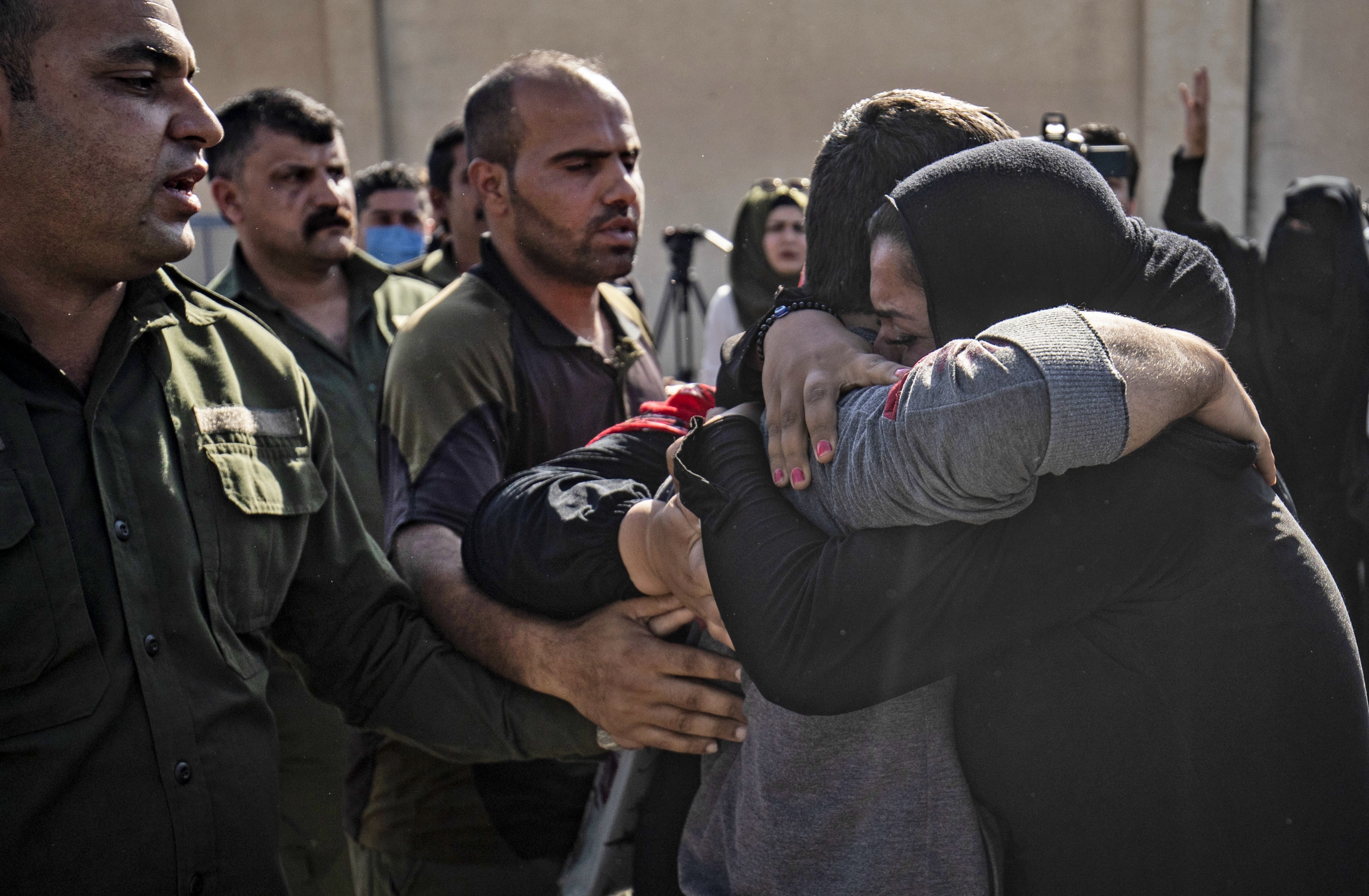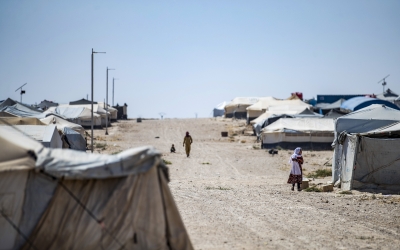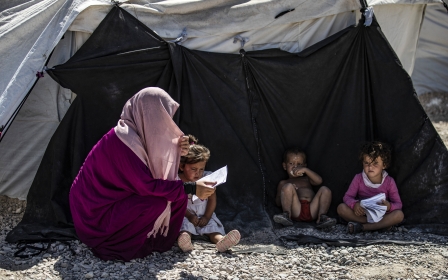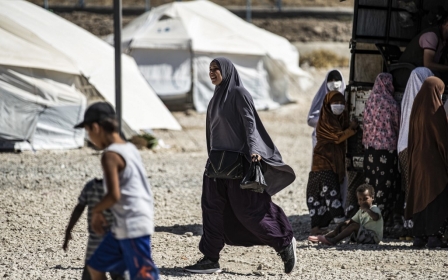Kurdish-led forces release hundreds of prisoners in northeast Syria

Kurdish-led forces overseeing northeast Syria freed more than 600 Syrians on Thursday who had been imprisoned for suspected links to the Islamic State (IS) group.
The 631 detainees, initially held on terrorism charges, were the first of those released in an amnesty deal between autonomous zone leaders and local Arab tribes in eastern Syria, AFP reported.
Amina Omar, co-chair of the Syrian Democratic Council (SDC), said during a news conference in Qamishli that "all those who were freed are Syrians" and they had served at least half of their sentences.
The Kurdish Rudaw news agency reported that some of the prisoners were "members of security forces".
"The released people are not all members of Daesh," said Ageed Ibrahim, a member of the Syrian Committee for Arrestees and Abductees, using an alternative acronym for the IS group.
"They also include members of security forces who have been arrested for security and political reasons and committing crimes."
The amnesty deal for imprisoned Syrians could boost cooperation between Kurdish forces and local Arab tribes involved in the military alliance controlling the area.
The Kurdish Autonomous Administration of North and East Syria, also known as Rojava, has for years held tens of thousands of mostly Syrians and Iraqis for their suspected links to IS.
Among them are also hundreds of imprisoned foreigners. The SDC has repeatedly asked the international community to repatriate and try their own citizens, to little success.
Al-Hol camp: Women and children released
On Thursday, AFP correspondents outside the Alaya detention facility in the outskirts of Qamishli saw dozens of detainees leave the premises and reunite with relatives who had come to meet them.
"My brother has been in jail for eight months for women trafficking in al-Hol camp," Ahmad al-Hussein said, in reference to the largest detention and displacement facility in the region.
Al-Hol alone shelters more than 60,000 people, including 24,300 Syrians either captured or displaced by fighting, according to the UN Office for the Coordination of Humanitarian Affairs (UNOCHA).
The cost of maintaining the camp and other facilities like it is a burden the cash-strapped Kurdish administration is seeking to alleviate with mass releases.
On Tuesday, the SDC said on Twitter that it had released some women and children from the camp.
It was unclear how many people were released, but the SDC said there was no proof that any of them had been "involved in hostilities and crimes against Syrians".
Earlier this month, authorities said they planned to release all Syrians from the camp and relinquish any responsibility for foreign nationals being held there.
"A decision will be issued to empty the Syrians from the camp completely. Those who remain in the camp will not be the responsibility of the self-administration," Ilham Ahmed, president of the executive committee of the SDC, said at the time.
"The self-administration does not have to pay exorbitant sums in order to provide these people with food and other things," said Ahmed. "Besides the problems that arise daily including assassinations, rape and so on."
Middle East Eye delivers independent and unrivalled coverage and analysis of the Middle East, North Africa and beyond. To learn more about republishing this content and the associated fees, please fill out this form. More about MEE can be found here.






